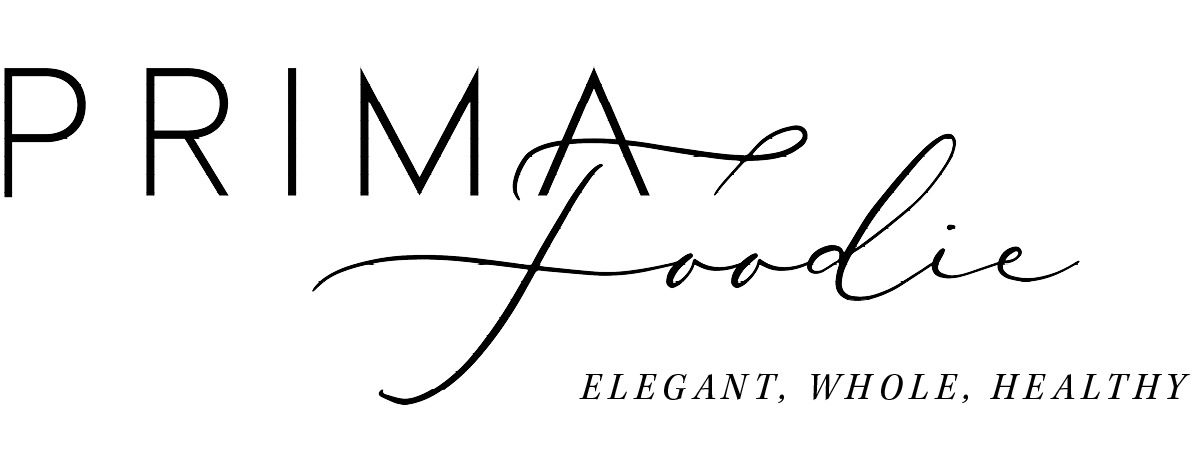3 Food Values We Live By
Eating well is complex. It is a subjective journey informed by culture, familial history, and dietary needs. What one person deems a healthy, balanced diet may radically differ from someone else's choices.
In considering this nuance, one thing stands factual no matter where we come from or how we eat: Our food choices directly impact our health and well-being. Too many people, particularly those of us in America, are steeped in a society that normalizes eating ultra-processed foods filled with sugars, hydrogenated oils, colorings, and other chemical additives. It can be hard to see how harmful these edible substances are because they physically surround us—in our schools, markets, restaurants, offices, places of entertainment, and more. Supermarket shelves overflow with products wrapped in packaging covered with untruthful yet alluring marketing words such as "natural" and "healthy." Mass food producers hire lobbyists to push legislative agendas that work for company profits and against our well-being.
Foods that are cancer-causing, endocrine-disrupting, and soil-toxifying have no business in our grocery markets. Many people deny that ultra-processed food is detrimental, which is understandable because our society has us believe otherwise. But we must peel back these layers, piece by piece, to continue to see the need to be vigilant about our food. We have more control over our health than we often allow ourselves to see—and it starts with how and what we eat.
As we continue to build this community around nourishing ourselves and building a better food system, we never want to proselytize or judge anyone's choices. Nutrition is personal. It's more than following a strict plan, measuring intake, or counting carbs or calories. Nourishing ourselves well includes enjoying our food, feeling good about our choices and food sources, and taking care of our bodies in ways beyond vitamins and minerals.
Staying atop of all this can be overwhelming. We know. This is why we believe it's helpful (and freeing) to follow pillars—or values—that act as guides. When we identify the things that are most important to our food choices and health, it allows us the capacity to take better care of ourselves. Values also help us continue to advocate for a better food system.
We often hear things from readers and the general public, such as: What are the best ways to eat healthier? Where do I start? How do I make better choices? The following three pillars is where we always start:
#1: Avoid Ultra-Processed Foods
We live by this value: Rid ultra-processed foods from your diet. These include foods made of substances extracted from foods containing additives, colorings, preservatives, and fillers. Common examples of highly processed or ultra-processed foods include soda, package snacks (crackers and cookies), chips, fast food, mass-produced bread, and frozen meals.
Famed food journalist Michael Pollan says to "eat food" rather than highly processed concoctions. "These days this is easier said than done, especially when seventeen thousand new products show up in the supermarket each year, all vying for your food dollar," Pollan writes. "Today much of the challenge of eating well comes down to choosing real food and avoiding these industrial novelties." So, to follow Pollan, avoid ultra-processed foods and eat true, whole foods.
And if you second-guess yourself about what real food is, listen to your instincts. A food is likely ultra-processed if it comes in a package of some sort, has an unnatural texture or color, and/or has a long ingredients list. Marion Nestle recently pointed out that research shows most people do know the processing levels of foods. So again, listen to your gut.
#2: Eat Local
Eating produce and meat from your region means consuming foods with higher nutrition (compared to store-bought items sourced from far away) and a lower carbon footprint. Local foods are also tastier and always in season. Shop at your local farmers' markets for your meals and snacks whenever possible. In doing this, you'll be eating real whole foods—and the benefits are endless.
#3: Enjoy Your Food
How we eat, as well as with whom, is as important as what we eat. Research shows that we make over 200 food decisions daily. When we overlook these choices or act on autopilot, we miss out on the pleasure of eating. We also tend to overeat or eat less healthily.
Pay attention. Create rituals around your meals. Enjoy cooking. Take your time. Make eating a memorable and happy event. Whether eating alone or with a crowd, plate your food, sit down, turn off distractions, and indulge in every bite. This will bring your mind to what you're eating. When joy, pleasure, and nutrition intersect, we're more likely to stick to eating habits that nourish us.
Again, eating well is personal. Only you know what's best for your body. Aim to educate yourself about the foods and what's in them. Support local farmers, eat mindfully, up your vegetable intake, avoid ultra-processed goods, and always stay hydrated with ample water. These pillars will allow you to nourish your body and mind best–no matter what that looks like for you.
